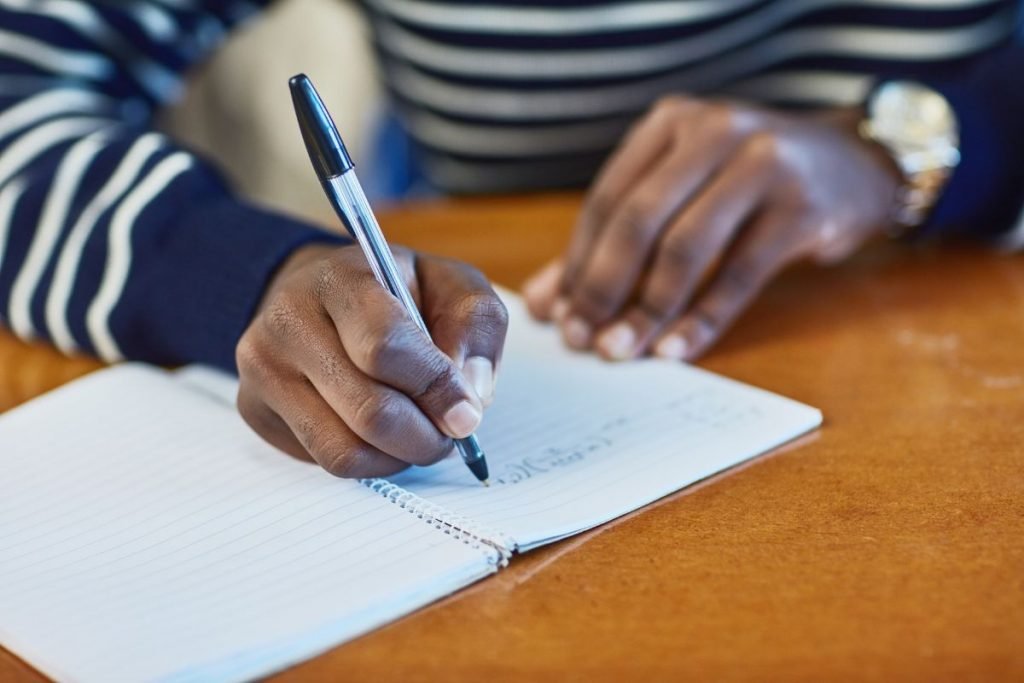Study skills are a crucial part of making the most of your high school education and increasing your chances of getting into college. According to the National Survey of Student Engagement, “students who study more frequently and effectively will earn higher grades and test scores and have a better chance of completing their degree programs” (Howell, 2006).
First things first: what are study skills?
Study skills are a set of abilities that allow students to learn more effectively and efficiently. They are important for high school students as they prepare for college and the workforce. Good study strategies and skills can help students get better grades, improve their academic performance, and save time.
One study found that college freshmen who used effective study skills were more likely to get better grades in their classes than those who did not. Study skills help students make the most of their high school education and increase their college admission chances. Learn some basic study skills, and you can master the class material more easily and quickly.
What are some study skills examples?
Study skills include things like note-taking, time management, active reading, and memorization. Techniques like the Cornell Method, using flashcards, or highlighting key ideas in your textbook can help you retain information and learn more effectively.
How many types of study skills are there?
There are numerous effective learning techniques, but only four main types of study skills: reading, writing, listening, and speaking. Each one is important for different reasons.
Reading
One of the most important study skills you can learn is how to read effectively. When you read, be sure to focus on understanding the main idea of the text and the supporting details. Take notes as you read, and outline or diagram the information to help you remember it.
In addition, be sure to preview the text to get an idea of what it is about and what key points you should be looking for. Finally, after you have read the text, take a few minutes to reflect on what you have learned and how it can be applied to your studies. By taking the time to learn effective reading strategies, you will be better prepared to understand the theory and present what you have read.
Writing
One study skill often overlooked, but can be extremely beneficial, is writing. When you write out your thoughts, you are forced to organize them and make sense of them. This process can help you better understand the material you are studying, as well as identify any gaps in your knowledge. Writing also helps you remember information longer, as you actively engage with it, rather than just passively reading or listening.
If you find yourself struggling to study effectively, discover your learning style, or simply want to improve your grades, give writing a try. It may take some time to get used to, but it is a skill that will serve you well throughout your academic career, especially when writing essays and planning essay responses for tests.

Listening
Listening is one of the most important study skills a student can have. By listening attentively in class, the brain can absorb more information, and students can perform better on tests. Listening also helps students build relationships with their teachers and classmates, leading to a more positive school experience and classroom learning. Here are some ideas to help you improve your listening skills:
- Pay attention to the speaker. Make eye contact and avoid distractions like doodling or looking at your phone.
- Listen for key ideas and take notes. Jot down key points or main ideas to help you remember what was said.
- Ask questions. If you’re confused about something, don’t be afraid to ask for clarification. Questions are often the basis for successful learning.
- Repeat back what you’ve heard. Once the speaker is finished, take a few minutes to repeat back what you understood. This is one of the most valuable learning methods students can use daily in class to ensure they have correctly interpreted the information.
Speaking
Similar to listening, speaking is often overlooked, but it can facilitate accessing information. When students speak up in class, they are not only demonstrating their understanding of the material but also engaging with it on a deeper level. Additionally, speaking allows students to practice articulating their thoughts and communicating with others. Here are our study tips for improved speaking skills:
- Prepare what you want to say in advance. This will help you feel more confident and prevent you from getting tongue-tied.
- Speak clearly and slowly. Take your time and enunciate your words so that others can understand you.
- Use body language. Gestures and expressions can help convey your message more effectively.
- Be confident. Believe in yourself and your ability to communicate your thoughts effectively.

Helpful study skills for high school students and beyond
When it comes to the most helpful study skills, there is no one-size-fits-all solution. However, there are a few basic skills that all students should master if they want to get the most out of their education.
Time management
One study skill essential for success in high school and college is time management. It’s crucial to learn how to balance schoolwork with other commitments like extracurricular activities and part-time jobs. Creating a study schedule and sticking to it can help make sure you’re using your time efficiently.
When you have a good understanding of how much time you have to study and complete each assignment for school, you can plan and organize your time more effectively. Here is how you can manage your time better as a student:
- Create a study schedule and stick to it. Designate specific days and times for study and respect your schedule as much as possible.
- Break down assignments into smaller tasks. When you have a big project or assignment, break it down into smaller chunks so that it is more manageable.
- Take study breaks. Don’t try to study for hours on end without taking a break. Get up and move around, take a few minutes to relax and clear your mind, or put on some background music.
- Set priorities. Not all tasks are equal in terms of importance. Make sure to prioritize your time to work on the most important tasks first.
Note-taking
Another important skill is effective note-taking. Taking notes in class can help you pay attention, remember important information and complex concepts later on, and study for exams. It’s also helpful to develop your own system for taking notes to quickly find and review the necessary information. Are you ready to take useful notes? Remember these tips:
- Pay attention in class and take notes diligently.
- Write down everything the teacher says, including main points, examples, and definitions.
- Use abbreviations, symbols, and keywords to help you remember information.
- Review your notes soon after class and add any additional information.
- Organize your notes by date and topic.
- Rewrite your notes periodically to help solidify the information in your memory.

Active listening
Those who master active listening are already on their path to success. Active listening means paying attention to lectures and discussions, asking questions when you’re confused, and participating in class. By being an active listener, you’ll be able to better understand and retain the material covered in class. This precious skill will help you master the material faster and make it easier to recall information when needed. Here is how you can actively listen in class:
- Be attentive and focused
- Take notes and ask questions
- Repeat essential points back to the professor
- Engage in class discussions
What are good study techniques for exams?
Start early, don’t cram last minute! Skim the textbook, take practice quizzes, review class notes, and focus on understanding concepts (especially in subjects like math). Create a quiet study environment, break study time into chunks, and use repetition to help memorize.
Stress management
Students often feel overwhelmed with the amount of work they have to do. Not only do they need to keep up with their coursework, but they also have to study for exams and complete projects. This can lead to a lot of stress, which can impact students’ performance in school.
Fortunately, there are ways to manage stress and still do well in school. One of the best ways to manage stress is to develop a study plan. This study plan can help you organize your work and study time to get everything done without feeling overwhelmed.
Those who said the road to success is paved with short breaks were not wrong. Take a few minutes for yourself and enjoy adequate rest to relax and recharge. You can also try relaxation techniques, such as deep breathing or meditation, to help you calm down.
Remember that you don’t have to do this alone
If you’re feeling stressed about school, remember there are ways to manage it, and you don’t have to do everything yourself. Developing a study plan and taking breaks can help you stay on top of your work and avoid feeling overwhelmed, as can working with a college coach.
Morzep college coaches can guide your path toward college admissions while showing you how to properly study, what extracurricular activities to take on, and how to fill out every form college admissions throws your way. Stress is easier to carry when someone else is willing to take on part of the burden.
What are some easy study tips?
1. Set small goals
2. Take breaks
3. Use positive reinforcement (snacks count!)
4. Create a routine
5. Ask questions when you’re stuck
Even reviewing a little every day can help you get ahead and avoid stress.
How to study effectively to improve productivity
The importance of healthy study habits cannot be overemphasized. When you have good study habits, you can better focus on your work, which can lead to improved grades and a greater understanding of the material. Additionally, good study habits can help you prepare for college and future careers. If you are serious about getting into college and fulfilling your professional dreams, start by cultivating study habits such as:
- Finding a study method that works for you. Some students prefer to study in short bursts, while others prefer to study for longer periods of time. Find a study method that works for you and stick to it.
- Creating a study space. It can be helpful to designate a specific area in your home for study. This will help you focus during your study sessions and avoid distractions.
- Limiting distractions. When you are studying, turn off your phone and any other devices that may distract you. Additionally, try to study in a quiet place if possible. Some forms of learning may include flashcards and music playing for improved focus and retention.
- Taking practice quizzes. A great way to study for a test is to take practice quizzes. This will help you identify any areas that you need to focus on.
- Asking questions. If you don’t understand something, don’t be afraid to ask your teacher or classmates for help.
How can I study better for hard subjects like math?
Break things into steps, memorize formulas, and review notes right after class. Use visuals, practice problems, and explain concepts out loud to boost comprehension. Don’t be afraid to ask for help!
Find the best way to study and get your grades up with Morzep College Coaches
Whether you’re struggling in school or simply want to improve your grades, focus on honing your study skills. With a little practice and our help, you’ll be able to master the basics of reading, writing, listening, and speaking. These skills will serve you well throughout your academic career and beyond.
Developing strong study skills is essential for academic success, but it takes time and practice. However, the effort is worth it. If you are willing to learn how to master these skills, you’ll be setting yourself up for success in college and your future career. Get in touch today!





